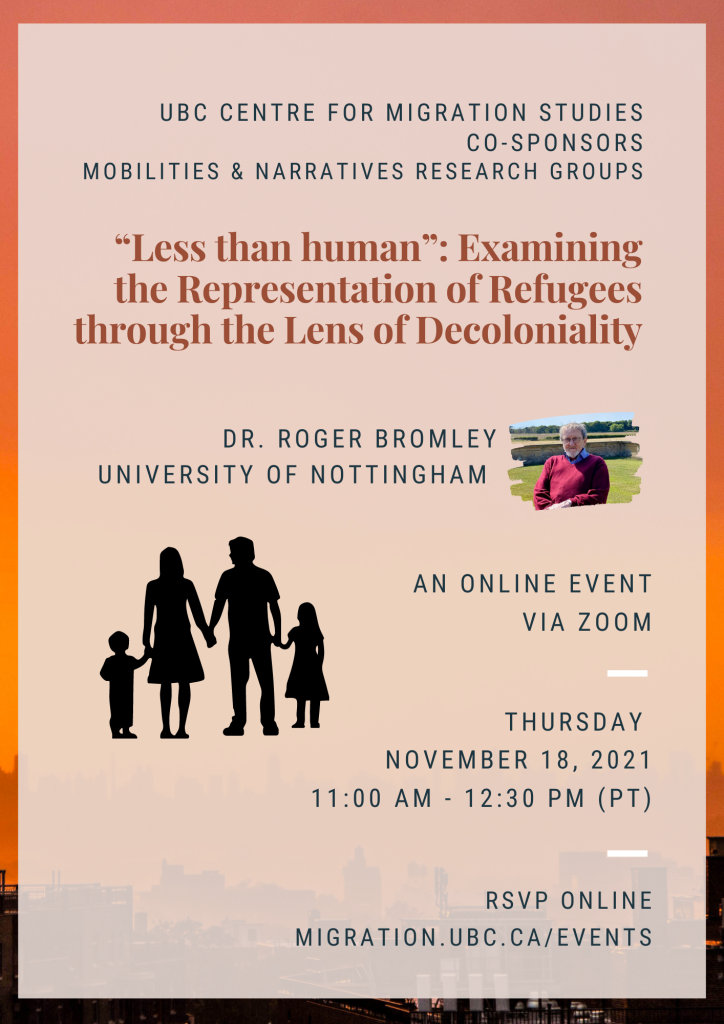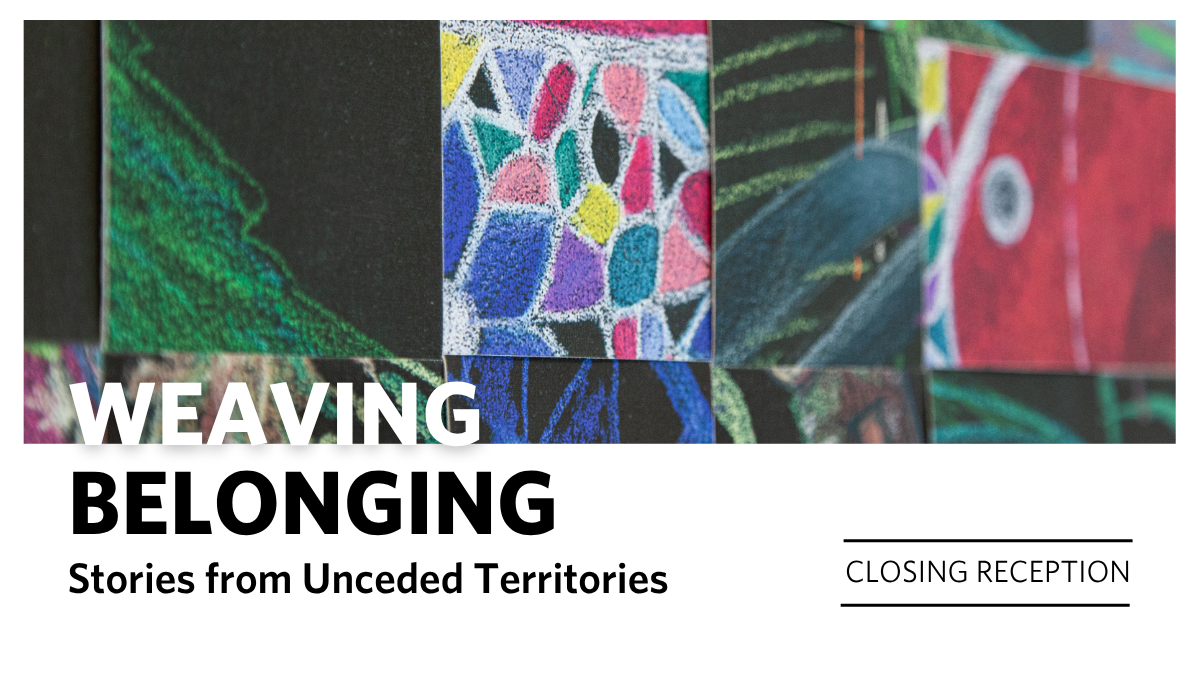“Less than human”: Examining the Representation of Refugees through the Lens of Decoloniality with Dr. Roger Bromley (University of Nottingham)
Co-sponsored by the UBC Centre for Migration Studies Mobilities and Narratives Groups
Thursday, November 18, 202111:00am – 12:30pm Pacific TimeLocation: Online via ZoomFree & open to the public. To register, fill out the RSVP form below.


[Abstract]
In recent years, my research has mainly been concerned with the political, economic and cultural implications of displacement. In carrying out this work I have used a number of concepts, including the ways in which European/Western societies have employed the idea of ‘the Other’ to create a sense of belonging, identity and social status for its citizens through varying forms of ‘ethno-nationalism’. Linked with this is a consideration of the historical, cultural and discursive processes through which the ‘Other’ is constructed in Western contexts – refugees in particular. The recent finding of the 1300 graves of First Nations’ children in Canadian residential schools is a tragic example of this.
Other than Achille Mbembe’s ‘necropolitics’, which I will briefly outline, I shall also use the concepts of disposability, ‘lives unworthy of living’ (adapted by the Nazis) and racialized dehumanization. As an overall framework for understanding and analysis, in this seminar I will be examining the complex symbolic-material nets of coloniality through the concept of the ‘coloniality of power’ developed by a number of Latin-American theorists in terms of decoloniality.
Apart from these theoretical concepts which are developed in the opening chapter of my recent book (Narratives of Forced Mobility and Displacement in Contemporary Literature and Culture) and connected to them, I shall be looking at a range of issues related to the representation of refugees in, often reductive, Western discourses/texts/media – the sentimentalised, passive victim, the vulnerable person, the object of compassion/hate, the agential subject, the resistant activist (‘actors in their own lives’) and the newly emergent citizen. This involves a number of methodological challenges. The experience of refugees is unrepresentable in a sense, an ‘unimaginable existence’ for most of us, and representational forms are always inadequate but this does not mean giving up on any attempt. Rather, it means the development of ‘other lenses for perception’, a greater aesthetic-political reflexivity and sensitivity, a search for new, and radical, rhetorical strategies, linguistic and stylistic resources which unsettle, defamiliarize, and disrupt expectations and preconceptions, the ‘always already known’ other. By exploring the limits of sympathy, the shortcomings of the liberal claim of common humanity, and insisting on the ethical dimensions of representation, it may be possible to discover interventions in film, the novel, art, music and drama which subvert the presumption of ‘knowing the refugee’. One example of such an ‘intervention’ will be briefly referred to: No Friend but the Mountains by Behrouz Boochani, ‘the true story of an illegally imprisoned refugee on Manus Island, Papua New Guinea’. Roger Bromley (University of Nottingham)
[Bio]
Roger Bromley is Emeritus Professor in Cultural Studies at the University of Nottingham, and was a Visiting Professor at Lancaster University until 2017. From 1964 to 2010 he taught in a range of universities in the USA and the UK. He is the author of Lost Narratives: Popular Fictions and Politics (1988); Narratives for a New Belonging: Diasporic Cultural Fictions (2000), From Alice to Buena Vista: the Cinema of Wim Wenders (2001) and joint editor of four other books. His most recent book, Narratives of Forced Mobility and Displacement in Contemporary Literature and Culture was published by Palgrave Macmillan in June of this year.
